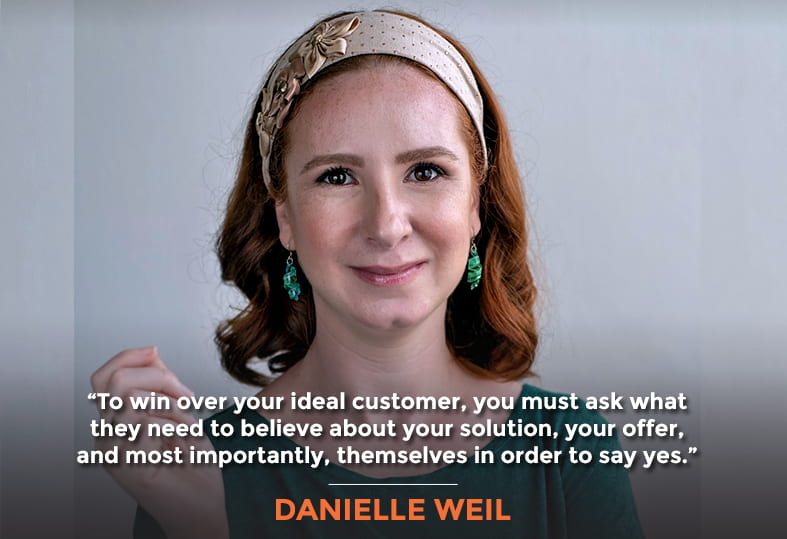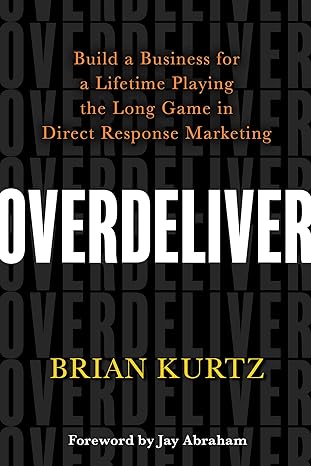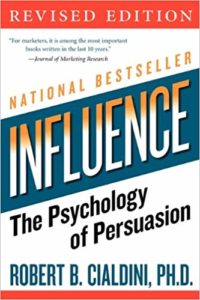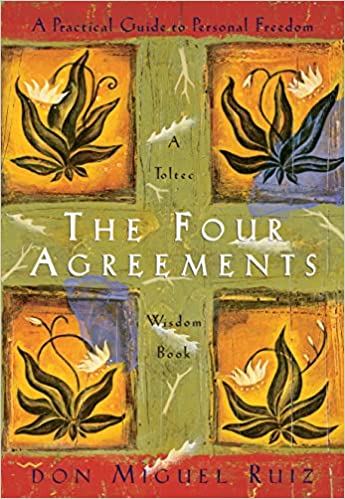Launching a product or service doesn’t have to be a stressful, high-pressure event. My guest on today’s show, Danielle Weil, a copy and marketing strategist, has spent over fifteen years perfecting the art of the LaunchFlow™ – a sustainable and profitable approach to product launches. With a track record of generating more than $170 million in sales for her clients, Danielle brings a wealth of expertise to the table.
In this episode, Danielle breaks down her unique perspective on creating launches that not only drive sales but also feel authentic and energizing for business owners. We explore the critical elements of a successful launch, from crafting compelling copy to designing effective pre-launch strategies. Danielle shares insights on leveraging various conversion events, creating irresistible bonuses, and building meaningful partnerships to maximize launch success. In addition, she discusses the psychology behind effective incentives, common launch mistakes to avoid, and strategies for aligning your launch with your personal strengths and business goals. Danielle offers practical advice on how to craft messaging that resonates with your audience and creates genuine excitement around your offer.
This episode is packed with actionable insights that could transform your approach to product launching and take your business to new heights. So, without any further ado, on with the show!

In This Episode
- [02:32] Stephan introduces Danielle Weil, a copy and marketing strategist, as they explore how to craft messaging that resonates with your audience. Danielle begins by describing her journey to becoming an expert in copy and launches.
- [08:07] Stephan and Danielle examine show-up rates and ROI for webinars, masterclasses, and more, both during and after the COVID-19 pandemic. Danielle also dives into strategies to increase desire, trust, and urgency in campaigns and launches.
- [13:20] Danielle provides examples of compelling bonuses that motivate people to take action.
- [19:13] Danielle outlines how to effectively develop messaging and what works best as a conversion event.
- [23:22] Stephan asks Danielle about effective partnership strategies for securing the right partners for a launch, especially if you don’t have a large list.
- [30:57] Danielle offers examples from her own copy and marketing practices.
- [38:55] Danielle explains the concept of price anchoring.
- [39:35] Danielle shares ways to learn more about her and how to work with her.
Danielle, it’s so great to have you on the show.
Thank you for having me.
So, I would love for you to share your origin story of how you became such an expert in copy and launches. Specifically, I know you had some amazing experiences working with big, well-known marketers and folks who had quite a lot of success. So maybe if you’re allowed. I don’t know if any NDAs are preventing you from talking about any of those folks, but it’s a fun start to this episode to hear a little bit of that storied background.
Yeah, sure. Well, I started writing copy somewhat by accident in college. It was better than the other college-starving students, and I accidentally got into it. My degree is in English literature and creative writing, and I’ve always sort of been a writer, and this was just a different type of writing.
After a couple of years of doing that, I connected with Ryan Levesque, creator of The ASK Method, and sort of became the senior copywriter there for many years. Got a chance to work with some other names, Todd Herman, Marisa Murgatroyd, Josh Turner, Selena Soo and Danny Iny, among others. Those folks are launching quite a bit, whether it’s their big launches, smaller courses, or programs. Like, you’re just writing lots and lots and lots of launch copy, but of course, you can’t write copy without having some sense of the strategy.
So, being behind the scenes for so many of these launches, getting all of this experience, and seeing how everything came together. I love the excitement of a launch. I believe in the value of doing a launch in your business if that’s something that fits into your strategy. And yet, I see so many business owners a little afraid to do them or viewing launches as somewhat negative for whatever reason. It’s like, well, I don’t want to do that, that stressful. And I’m kind of here to present a different view.
Yeah. So what is that different view?
Is that launching work when done right? When you have chosen the strategy that’s in flow for you, when your offer and your audience are aligned and when your energy is also aligned.
How does that differ from how most people are doing their launches?
You will see a lot of strategies out there. They’ll come in waves, they’ll come in trends.
You will see a lot of strategies out there. They’ll come in waves, they’ll come in trends. And you and I have seen this, like, okay, well, the challenge launch was big for a while. Everybody’s doing a challenge launch. Everybody’s doing the three-part PlC launch, and you just see many of them happening. And that tends to be the prevailing wisdom. Like, that’s the way, that’s how you launched. These are the strategies you follow.
People follow the step-by-step without asking themselves, like, is this a strategy that will work for me and my business, my strengths, and feel good to me? There is also a focus on following the steps versus focusing on more of the fundamentals. Is this offer actually right? Have I actually gone deep into my messaging and my audience? Let’s follow the step-by-step plan.
Our mutual friend, Michael Roderick, put it very well yesterday when he said it’s about formulas versus frameworks. It’s like following the formula. But that might not work for you. You actually need to get to the framework underneath the fundamentals and align those first because there are a lot of marketing strategies that work. There are a lot of techniques and tactics that work, but not all of them will work for you.
So what would be an example of a launch gone wrong and you don’t have to out anybody, but how does one fix or prepare to be successful and not screw this up? You can spend a lot of money on Facebook ads and then end up empty-handed at the end.
Sure. Well, I can think of a few examples, but one that I’ll share is a client from several years ago who was putting together one of her early first launches and creating a PLC pre-launch content series. So, like three full videos, a lead magnet, a webinar and a full email series. And her list wasn’t big enough at that point to sustain all of those activities. It was almost overkill for the offer, the high ticket offer she was doing, and the list she had.
Many marketing strategies work, but not all will work for you.
So to go back and say, “Well, okay, you actually don’t have to do all of these things right off the bat just because you see this eight-figure business doing it. You can focus your efforts on getting people to one conversion event and do more personal reach outs for your list, and you are likely to be more effective than blasting all these moving pieces.”
So, what did she do differently next time?
One quiz led to one workshop, and the offer was tweaked. The offer was tweaked a bit, and she sold her cohort.
Was what, maybe 20 people, 50 people? What was the size of the cohort?
I think it was something like 15 that she wanted.
Okay, so if challenges are kind of over, it does not necessarily feel like those were all the rage back during COVID. What does one get these days regarding show-up rates and ROI for things like challenges, quizzes or webinars like masterclasses and things like that?
Showing up these days is tougher than it used to be because, again, we were all sitting at home with plenty of time in COVID. People’s calendars are full. They’re traveling more. There’s also a lot more competition, I think, in the marketplace. But I wouldn’t say challenges are out. I wouldn’t say quizzes are out, like, all these things. And I have examples I can’t necessarily talk about, about people using a challenge right now to fill their mastermind. I have people who use the quiz funnel effectively, and workshops and webinars are still going strong.
I like my fast-action bonuses to have a reason behind why they disappear other than it’s just going away tomorrow.
We’ve had other things enter the fray. It’s a matter of whether we are using that strategy effectively. Are you using it in a way that creates desire, trust, and urgency? The three ingredients, I think, of any successful launch.
Okay, so let’s talk more about that. What would you do specifically to increase desire, trust, and urgency in a campaign or launch you’re producing for a client or yourself?
Those are, I think, three separate questions. Right. The desired piece is, have you created a compelling offer? That’s a no-brainer, from a pricing perspective, where it looks like a great deal and is relative to your value. And have you tapped into existing demand for that offer? Because you can’t just sell people what you think they want. You actually have to sell them what they want. And have you tapped into that?
The trust piece is, have you established your credibility as a person who can a, help them and solve their problem, b, do what you say you’re going to do, and c, the urgency piece. This is where I still think the launch model has an edge over an evergreen funnel because you have that natural urgency lever built in. You are closing the doors.
It’s going away. The bonuses are going away, whatever that thing is. But I’m always a proponent of authentic urgency. I like my fast-action bonuses to have a reason behind why they disappear other than it’s just going away tomorrow. So, for example, I’ll do a bonus that I’ll be doing website reviews before the program starts. They’re happening on XYZ date, so you must get in by this date if you want. So, that’s an example of what I would call authentic urgency.
It’s good. Yeah. So what would be an example of a bonus that really, I don’t know, made your skin crawl? You don’t have to give any names, but it felt really inauthentic when you saw it.
Putting me on the spot here. I mean, the one thing that I think has led me to go the other way was seeing a lot of okay, and this bonus is going away tomorrow. We can’t do it for everybody. Even though behind the scenes, we can do it for everybody. Of course, everybody’s going to get it. And yet you’re saying, nope, there’s a countdown timer on it; it’s going away, goodbye. And you can do that.
People will believe you. But it creates this inner, at least for me, this inner discomfort. Right? By saying, presenting that and asking people to trust you when you know you’re doing something that’s not necessarily true.
Yeah. How about this one? There will be no replays.
Formulas can fall short, but frameworks align with the fundamentals. It's not just about following steps—it's about building the foundation that truly works for you. Share on XOh, when I say there will be no replays, I mean it. I do my live workshops, and there is actually no replay. I will say there are other dates you can come to the next one, but I’m really adamant about someone being there live because I think you get a better experience when I interact with you.
Yeah. And they bring more of themselves, and they’re more present.
How many of us have gotten access to a replay and then either been frustrated that we can’t fast forward it and there’s no scrub bar or have fast forward it to get to whatever we think is the interesting part of the pitch, like, okay, what’s happening?
Yeah. And then also if you’re, let’s say, cooking a meal or checking your email at the same time, you’re not really present for whatever the potentially transformational content you will get. And so you don’t get the transformation.
The best bonuses anticipate and answer the biggest objections to the program.
Exactly.
Yeah. So give us some examples of really great bonuses that make people want to take action and just feel like, wow, this is a must.
So the best bonuses, and this learned from Ryan when we were creating bonus offers for those launches, is to answer the biggest objections you are getting. So great bonuses. Anticipate and answer the biggest objections to the program. You have actually called them out and created a bonus to answer those objections. A great bonus package has multiple modalities. So it’ll have maybe some pre-recorded training, maybe something that’s downloadable, maybe something that’s audio, maybe even a ticket to a live event if you’re doing something like that. So, it has multiple modalities. Great bonuses if you can give one-on-one time. Those always have a very high perceived value, especially if you don’t do a lot of them.
Gotcha. What are some examples that you’ve produced?
Yeah. So it’s actually evolved. When I launched the first cohort of my program, it was right when AI was everywhere, and it was just coming onto the scene. And the big question was, “Can AI write my copy for me?” I still think the answer is not no, but I’m a little biased and willing to be convinced otherwise. However, the bonus I created for the program was ten ways to use AI in your launch. Now, I’m not an AI expert in any sense. I use it in a couple of specific ways, but the people coming into my program were also not AI experts. Like, I introduced people to ChatGPT for the first time.

So having that as a bonus to answer that, what about AI? One quick example. Another example is, well, what about the copy? What about writing all the copy? And because I’m a copywriter, I will include in my program how to actually write what you need to launch your sales page, emails, and webinar. So you will get all of that detailed training I’ve created and examples. So I call that out as a separate bonus.
Yeah, great. And are you personally doing challenges or quizzes?
I do have a quiz. It’s What’s Your #1 Launch Block? And that sort of leads directly because once you know which of the five flows is most out of alignment for you, I want you to come to a workshop with me to talk about it and figure out that there are five things that need alignment. So I’ve got a quiz for live workshops That I’m doing.
And these are virtual?
Yes.
Great bonuses have multiple modalities.
Gotcha. And how does all this relate to you being a really renowned copywriter? I’m trying to understand where this fits in for you. You’ve got all the great copywriting you’ve been doing over the years and are well-respected in that field. You have launches where you’re strategizing things like quizzes and challenges. One-on-one calls for bonuses, etc. And I, what’s your day look like? What does your month look like regarding what you’re doing in terms of copywriting versus your launches versus getting hired by folks to manage a big launch?
I still have some work done for your copywriting projects, but at some point, you’ll see this happen to a lot of copywriters. Either they will stay and just be copywriters and make that their career, or they’ll say, “Well, okay, let’s grow into an agency”, or “let’s grow into an education business. Let’s grow into teaching what we know.” And I love teaching. It’s one of my favorite things to do.
I also specifically help business owners with what I think is a weak link sometimes in a lot of the training that’s out there, specifically around the words. The program is called LaunchFlow™. We get the strategy together, but it’s very much grounded in the messaging. It’s very much grounded in the copy and the persuasion, and it makes sure all makes sense.
So, yes, I still write copy. I write in the mornings and then take a very long afternoon nap. Then, I return to evenings, my time, to chat, have calls, and teach.
What time do you normally go to sleep?
Midnight-ish.
Okay.
It works for me.
All right. We’re in the same time zone now. We’re both in Israel, and I’m having a little bit of a hard time dealing with the US market and also getting a good night’s sleep.
It’s true. It started out of necessity because I had two small kids when I moved here and started doing this. Now I have four, and they’re a little bit bigger, and they kind of put themselves to bed for the most part. But it was like kids going to bed at seven. I can only start meetings at seven because I’m spending time with them between four, five and seven o’clock, and then I like that my mornings are quiet. I like that I don’t have meetings to go to or things are going on, and I can focus on the deeper work in the mornings. I’m also not a super morning person, so I do not want to start at 05:00 a.m. or anything.
You don’t need to mimic an eight-figure business. Focus on one conversion and personal outreach—it’s more effective than juggling too much at once. Share on XI’m maybe at my desk by night.
Yeah, I like the quieter mornings, too, but it feels like these days go really long, and it’s a lot. Highly recommend. Distract us from all the good stuff we’re talking about, complaining about staying up late. So back to messaging. What are some examples of good messaging? Examples of bad messaging relate to some launches that maybe you’re involved with or not involved with, and you’ve seen what would like. Let’s get more granular about the messaging side of this.
It’s not a matter of good versus bad. Have you accurately understood your audience or not? Have you taken them through a process, a bridge, I call it, where you have changed their beliefs so they understand that your solution will solve their problem?
First, you have to understand what those beliefs are. You have to know, like, okay, what does my ideal person need to believe in order to buy this thing and buy into my solution? What do they have to believe about me? What do they have to believe about my offer? What do they have to believe about themselves? And those beliefs shift, not necessarily all at once.
Effective launches use the prelaunch period for education, belief shifting, and moving audiences through awareness stages.
Sometimes, they do if you’ve got one big webinar. But the whole point of having a launch with a prelaunch period, a webinar, and an open cart is that you have time to shift those beliefs. So, the most effective launches will use the prelaunch period effectively in terms of education, belief shifting, calling in perhaps a more unaware audience, and moving them through the stages of awareness. I’ve seen launches that worked on a shorter timeline that did not do that effectively.
Suppose you’re looking for examples. So, I don’t know if it’s good or bad messaging. It’s because they did not have the right process. They didn’t have enough time maybe to bring people on that journey, to bring people across that bridge.
Well, what would be an example of a good timeline? What’s the best practice for the prelaunch, open cart periods, etc.?
It depends. But for the most part, you will want a couple of weeks to start doing your seeding content, even your prelaunch content, to get people thinking about the ideas and concepts you’re about to present. And then when you say, “Hey, I’m doing this thing,” it’s at the top of their minds. They’re like, “Oh yeah, I was just thinking about that.” And they wonder why they were just thinking about that. It’s because you’ve been gradually seeding and talking about those ideas. And then you’ll have, depending on what conversion events you’re using, a prelaunch period of a couple of days to even up to two weeks. If you’re using multiple conversion events to sort of get people in and get people through, there are lots of partners and lots of moving pieces.
But if you’re doing a smaller launch, your list may not be as big, and then you have a couple of weeks of warm-up content. You invite people to one conversion event, which is your main event.
What tends to work best as a conversion event?
A webinar, again, depends. And this is why we talk LaunchFlow™, right? This is what, like, not I’m not going to give you. This is the step-by-step thing. It could be a workshop; it could be a challenge. It could even be almost like a private podcast. It could be. I like webinars and workshops. It could be a video series they’re consuming, a small size.

I had a client who designed a bunch of these little two-minute videos. It could be a series of live videos that you do. It’s all open as long as the content within it takes people where you need them to go, and that’s what works for you. And, like, does this feel good to me? Is this where I can shine? Like, I’m great when I am in a room of people, and I can interact with them, have conversations, and workshop their stuff. That’s my favorite way to teach and also show my skills. But for someone else, the idea of doing a webinar just goes, and they’d rather pre-record something. It also might fit their market better if they’re talking about building a graphic design business to have more edited, pre-recorded content. So it really does. Those are the questions that asking yourself will actually help you find the right path.
So, what would be a good partnership strategy, process, or plan for getting the right partners? JV-type partners are on board for a launch, especially if you don’t have a big list.
Partners for a launch, if you don’t have a big list, is being in rooms and spaces where you can create real relationships with your partners. Right. You and I met through a group that we’re both in. We can name names. We’re in. Yeah, we’re in a group called JVMM together. JV mastermind.
And Dov‘s been on the show. Yep. Twice.
There we go.
Success hinges on understanding your audience. Guide them across the bridge, shifting their beliefs so they see your solution as the answer to their problem. Share on XAnd, by the way, Ryan Levesque, I didn’t mention this. He’s been on the show too.
Oh, very cool.
Yeah.
So really being in and being able to form deep relationships with partners if you don’t have a big list, and this has been sort of my experience as I’m growing and building things, it’s being able to have the longer relationships with partners to do things together that’s more than just, “Okay, I’ll mail for you, you mail for me.” Like have you mailed it yet? It’s maybe doing a joint event together. Maybe think creatively about how to turn something into a conversation that adds value to what’s happening.
I had a conversation with one of my partners. We did a pre-recorded thing, but it was really about launch strategy. She had her perspective, and I had my perspective, and we posted it. It set things up very nicely; it was a nice introduction for us to promote each other later. So you don’t need 100 partners all at once. If you are just starting with partnerships, you need deep relationships with a few key partners. At least, that’s my view.

Yeah. Can you name a partner you’ve been really successful working with and vice versa? So they’ve gotten a lot of value. You’ve got a lot of value working together.
Sure. So, I have a very good friend, Tiffany Neuman, and she’s a brand strategist. That works so well because once people get aligned on their brand, they generally want to launch it and launch a program with that new messaging. And so it’s just natural. She’s also done my brand, and there’s just a natural fit for her to say, “Hey, you’re ready to launch your brand; come talk to Danielle.” And for me to say, “Well, launching is one thing, but you’ve got to have that solid brand foundation. Tiffany is the master.”
Cool. How did you end up meeting?
We met through a mutual friend, Ron Reich. Do you know who that is?
No.
Naming a lot of names here.
Yeah. I don’t know that person, but yeah. So often, I find that the people who are most influential and beneficial to me, and vice versa, are like divinely orchestrated meetings. What are the odds that this would happen? And then, of course, having that person in your life or business has been life-changing.
Yeah, definitely.
Cool. Who have been your biggest inspirations in terms of not just launches but also copywriting and business and going out on your own instead of working for others and having that kind of laptop lifestyle? Who are your biggest influences?
Good question. Why do no specific names come to mind?
Well, how about. Let’s start with books. What are some books that really helped you? Whether it’s about copywriting or just the authors of those books. Jay Abraham or Bob Bly or Claude Hopkins?
Brand alignment often leads to launching with new messaging.
Funny story. I did not read a copywriting book until several years into my career.
Okay.
I worked as a copywriter for many years before I picked up a copywriting book. However, the ones I have on my shelf are Overdeliver by Brian Kurtz, Influence by Cialdini. I do a Cialdini book club.
Both Brian and Bob have been on the show.
Yeah.
Yep. They’re awesome.
And what else is there? Mindset by Carol Dweck. It’s not a copywriting book specifically, but I think that was a big “aha” for me. The fixed mindset versus the growth mindset. Still a work in progress, but awesome.
How did you learn about Brian Kurtz?
So, I was at one of Ryan’s early masterminds. I think it must have been 2015, and Brian was a guest speaker there. And then we reconnected after the facts a couple of years later and then hopped into his group recently.
Cool. So you’re part of his group currently?
Yes.
Okay. And how is that?
It’s good.

Yeah. I’ve spoken to his group before. I know Brian through the Genius Network. Joe Polish’s mastermind. Yeah, Joe was a guest on the show, too. We’re just name-dropping all over the place. And how does Dr. Robert Cialdini Influence your favorite principle?
That’s like picking a favorite child.
I know. I’ll ask you that next.
I refuse to. And there is. Because they all, for the most part, work together. Like, if you have something that’s working, there are generally a couple of layers of those principles that are hard to separate. I don’t have a favorite. Don’t make me pick.
But what pops into your mind is a principle you love that works. Well, I’ll start. Unity principle. If I find out, for example, that the person went to the University of Michigan, it’s like, oh, I went to UFM as well. Go blue.
Right. So that helps to really build rapport and relatedness. Right at the beginning of the conversation, if I know that about the person and we kind of start off that way, then we’ve already hit it off. So that’s something I like about those influence principles: finding common ground or commonalities that make them feel camaraderie with me. How about you?
I think one of the most interesting ones. And I forget if it’s Influence or Persuasion, but the idea of commitment is something that I use a lot in copy. Getting someone to identify as something, commit to something, and then we are basically hardwired to follow through with that and do things that align with that statement that we’ve made, that declaration that we made, that commitment that we’ve made. So I am a person who XYZ. And then, you know, if you are the type of person, there are many ways it can be used for good, so to speak. I just think it’s really powerful.
Do you have an example that you’ve used in your marketing?
Sure. I like showing people how the actions that they’ve taken already bode for future actions and how that creates alignment and consistency. So, if someone took the time, I have a mini course, and it’s 14 emails. You’re supposed to spend 20 minutes daily hitting reply to that email. So I get the replies and do the little mini-exercise. And when someone completes all of them, this is a surprise, unannounced bonus. I will invite them to a call to review their emails.
Right. You’ve shown me that you are the type of person who makes a commitment, follows through with it, and takes the time to commit. I would like to allow you to continue making that commitment as well. Best example. But it’s the one that came to mind.
That’s cool. Now that this is out there, maybe everybody will go through and answer all 14 emails.

But here’s the thing. I don’t mind if you do if you are the person because so many people will sign up for a thing, do a thing, buy a thing and nothing, complete it. And that’s not the way to get the desired result. So, if someone has taken the time to buy my program, spend 20 minutes a day for two weeks engaging with my content and actually making an effort, I would love to reward them with a review. Like, I would love to help you get that next step. Sure. Any day we’ll do that. So that’s the secret.
If you get inbox love and do all the exercises, and I see that you’ve done all of them, you get to chat with me.
That’s cool. That reminds me of one of the many daily affirmations that I go through. I’m a man who does what he says he’s going to do because I want to be that kind of person who makes commitments and follows through 100%, and I just kind of wire that into my consciousness.
It’s something that, again, I think it feels obvious. But you don’t always get surprised. For example, if you’ve made a commitment or said you’re going to meet a deadline, do that.
Yep, absolutely. So do affirmations or anything. That’s cool, and you want to share it in your morning rituals.
My morning ritual involves coffee, and that’s basically it. I’m not one of those who wake up at 05:00 a.m., so I can journal kind of people. I’ve got four kids, and I’m starting my day with coffee once a week. I start with a yoga class with my husband. We do yoga together once a week. And then the rest of the time, it’s like, all right, I’m going to wake up. I’m going to sit outside on my balcony and have some coffee.

I actually don’t like coffee. It does not appeal.
Some people don’t. Are you a tea person?
Not really. Tea is fine, but coffee just tastes icky to me.
We can still be friends.
Yeah. Yeah. Good. Let’s go back to this book that you mentioned, Mindset by Carole Dweck.
Yeah.
So what is the biggest takeaway or epiphany, life-changing kind of piece of content from that book that you got and maybe our listener will relate to or resonate with?

I feel like this idea of a growth mindset has sort of made its way into the mainstream. But the book creates this contrast between fixed mindset, which is that we have the skills and abilities, and whatever we are born with, and that’s it. A growth mindset means we are infinitely capable if we decide to. And she backs it up with research and studies and all those things to grow, to change, to learn to do things. What makes the difference is how we perceive those abilities and take criticism. If we’re coming at something from a fixed mindset, then any sort of criticism will feel like a personal attack. Okay, you couldn’t do that because that’s you versus a growth mindset where you come across a failure or a setback. And it’s like, “Okay, I just haven’t learned to do this thing yet.”
It says nothing about me or what I’m capable of. It’s a lesson to be taken, internalized, and learned from. And so business launches anything.
Did you used to take things personally?
I think in many ways because that’s how society, at least with my generation, is used to treating kids, raising them, and looking at things in most cases. Right? I think we’re a little smarter now than we were. But it was like, Okay, well, you get a grade, and you get this and like, you know, you’re in the smart class, or you’re not in the smart class, and that’s just who you are. It’s hard not to pick up some of that. I think a lot of people struggle with internalizing criticism.
Yeah, yeah. Do you know the book The Four Agreements? Don Miguel Ruiz, one of the four agreements, does not take anything personally.
Yeah.
Yeah. It’s life-changing. If you really do take that on board and not take anything personally, it’s so freeing.
Definitely.
Yeah. So we’ve covered a bunch of stuff, so I want to just kind of zoom out a bit and see if there’s anything that you wanted to share as a last takeaway or wisdom nugget that may or may not even have anything to do with marketing and would be something we haven’t already talked about. So, not covering the launch strategies and all that, what would that wisdom nugget be?
Weirdly enough, it’s going to be parenting advice. I feel like we’ve covered the gamut here, and I think I’ve got thoughts brewing for a potential book or the lessons we take from marketing to our parenting and vice versa. And I think there’s a lot of overlap. There’s a lot of commonalities. I see myself doing many things as a parent, and I am informed by what I do and influenced and persuaded by all of those things. How do you price anchor a kid on something they want, potentially? And you’re like, well, this. But actually, you’re getting a great deal because. And I do it without even noticing that I’m doing it, which is fun.
Everything is sales and marketing at the end of the day, as both are about changing beliefs.
So, advice, everything is sales and marketing at the end of the day. And that’s because sales and marketing are belief changes. That’s all it is. And that has applications to parenting politics. We’re on marketing speak, right? So this is probably not a new idea that I’m bringing. Still, it’s a good reminder that once you are a good marketer, an effective marketer, you will be opened up to a set of skills, talents, and perspectives that can be useful to you in many, many other ways.
Cool. And for our listeners unfamiliar with the terms price anchor or price anchoring, can you define that?
Sure. Price anchoring. It’s also in influence. If you walk into a car dealership or something, you see it all the time, with the retail price at $50, so it looks like a good deal when it’s on sale for 20. So you’ve anchored that price at 50, but the real price that you want to get for it is dollar 20, just based on the perspective that the first number that we see, the big number, sort of sets the frame for what comes after it, whereas $20 for something out of context might feel expensive.
Yep, good stuff. All right, now, where does our listener or viewer find you? And perhaps work with you.
The best place to find me is on LinkedIn. Or you can go to my website at dwcopy.com.
And your program LaunchFlow™. That’s open. How many times a year?
That program is open all year long.
Okay, so that one’s evergreen. Thank you for sharing all sorts of wonderful wisdom and experiences. All right, thanks for having me and thank you, listener. We’ll catch you on the next episode. In the meantime, have a fantastic week. I’m your host, Stephan Spencer, signing off.
Important Links
Connect with Danielle Weil
App and Tool
Books
Businesses/Organizations
People
Previous Marketing Speak Episodes
Previous Get Yourself Optimized Episode
YouTube Videos
Your Checklist of Actions to Take










About Danielle Weil
 Danielle Weil is a copy & marketing strategist and the creator of LaunchFlow™, who helps expert business owners build a fun, profitable, sustainable launch engine. Since 2006, she’s written dozens of 6 and 7-figure launches, generated over $170M++ in sales for clients, and mentored business owners to break their own sales records while launching in a way that creates flow and momentum.
Danielle Weil is a copy & marketing strategist and the creator of LaunchFlow™, who helps expert business owners build a fun, profitable, sustainable launch engine. Since 2006, she’s written dozens of 6 and 7-figure launches, generated over $170M++ in sales for clients, and mentored business owners to break their own sales records while launching in a way that creates flow and momentum.







Leave a Reply